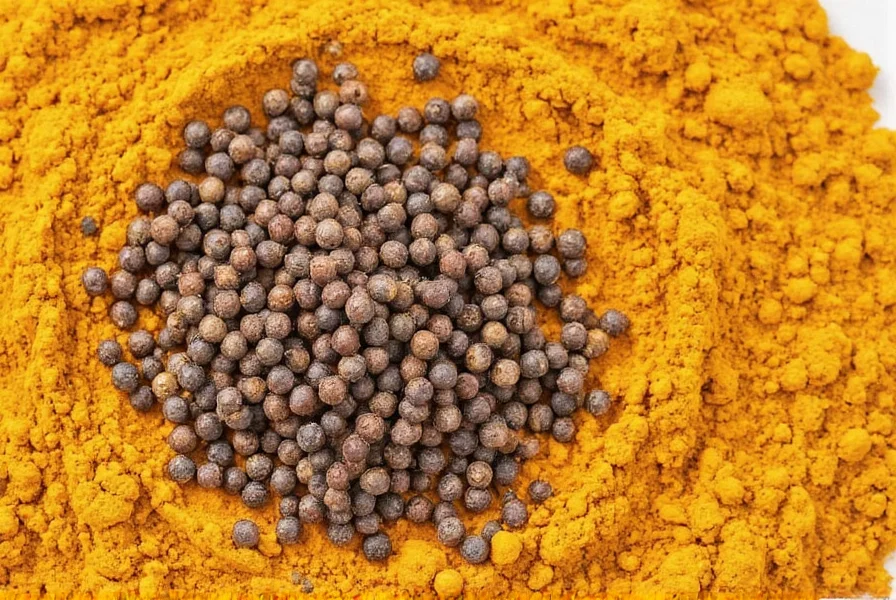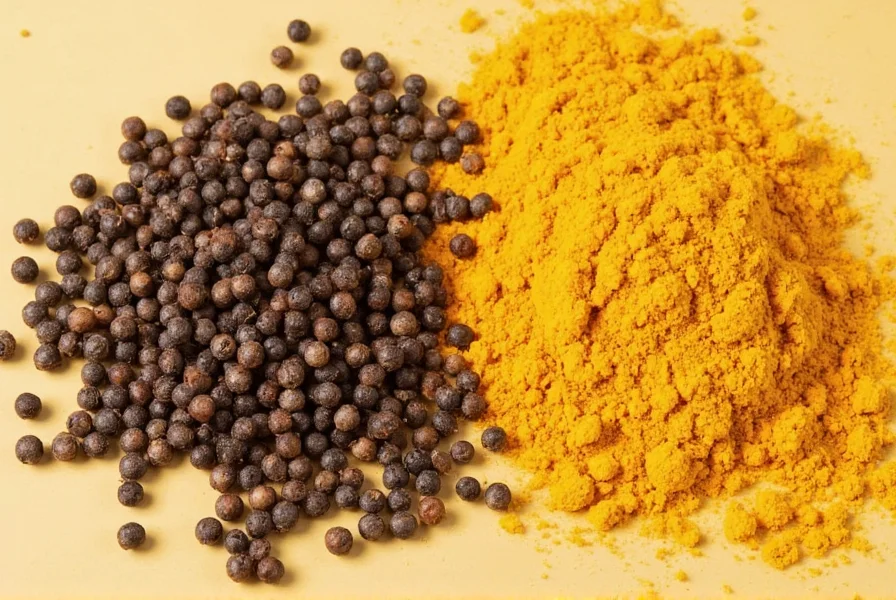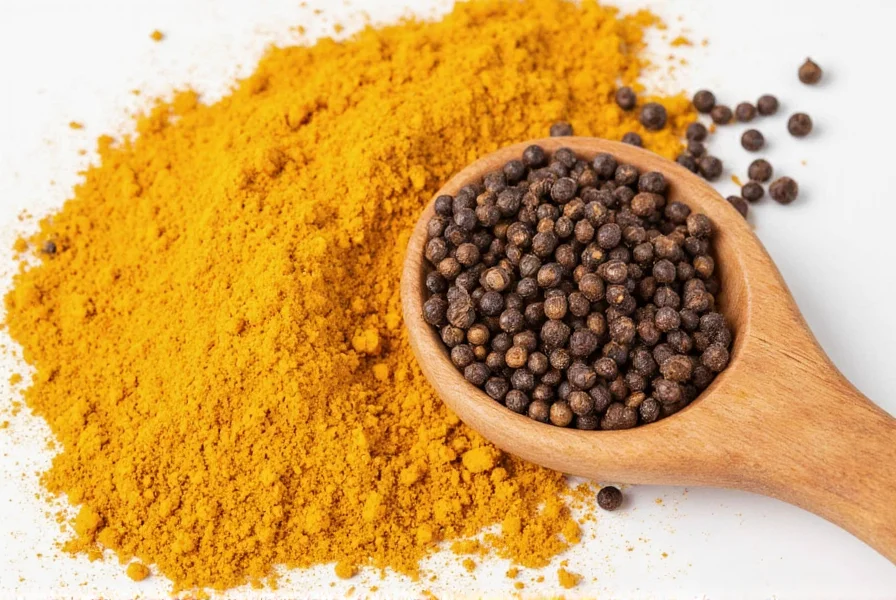For those seeking natural approaches to wellness, the pairing of turmeric and black pepper represents one of the most scientifically supported combinations in nutritional science. Turmeric, a vibrant yellow spice long used in traditional medicine, contains curcumin—a compound with powerful anti-inflammatory and antioxidant properties. However, curcumin faces a significant challenge: poor bioavailability. When consumed alone, the human body struggles to absorb and utilize curcumin effectively due to rapid metabolism and elimination.
Black pepper contains piperine, an alkaloid responsible for its pungent taste and remarkable ability to enhance nutrient absorption. Research published in Planta Medica demonstrated that just 20mg of piperine alongside 2g of curcumin increased curcumin bioavailability by 2,000% in human subjects. This dramatic improvement occurs because piperine inhibits certain enzymes in the liver and intestines that would otherwise break down curcumin before the body can benefit from it.

The Science Behind Turmeric Bioavailability Challenges
Curcumin's therapeutic potential is well-documented across hundreds of scientific studies, yet its effectiveness depends entirely on whether the compound can reach target tissues in sufficient concentrations. Without enhancement strategies, curcumin faces three major bioavailability hurdles:
| Bioavailability Challenge | Impact on Curcumin | Solution Provided by Piperine |
|---|---|---|
| Low solubility | Poor absorption in digestive tract | Enhances membrane permeability |
| Rapid metabolism | Quickly broken down by liver enzymes | Inhibits glucuronidation process |
| Fast elimination | Short circulation time in bloodstream | Slows metabolic breakdown |
These challenges explain why consuming turmeric alone provides limited benefits despite its impressive laboratory results. The addition of black pepper directly addresses these limitations through piperine's biochemical interactions.
Clinical Evidence Supporting the Combination
Multiple peer-reviewed studies have validated the turmeric-black pepper synergy. A 2016 review in Food Science & Nutrition analyzed numerous clinical trials and concluded that piperine consistently demonstrates "significant enhancement of curcumin bioavailability." Another study in Phytotherapy Research found that subjects taking curcumin with piperine showed dramatically higher blood levels of curcumin compared to those taking curcumin alone.
Research has also demonstrated that this enhanced absorption translates to measurable health outcomes. Studies examining inflammatory markers, joint mobility in arthritis patients, and cognitive function tests consistently show superior results when curcumin is combined with piperine compared to curcumin alone.
Practical Application: How to Use This Powerful Pair
Understanding the science is valuable, but practical application matters most for daily wellness. Here's how to effectively incorporate this combination:
- Dosage ratio: For every 1,000mg of turmeric or curcumin, include 5-20mg of piperine (approximately 1/20th of a teaspoon of black pepper)
- Timing: Consume with a meal containing healthy fats, as curcumin is fat-soluble
- Forms: Works with both raw turmeric root, powdered turmeric, and standardized curcumin supplements
- Preparation: When cooking, add black pepper to turmeric-containing dishes like golden milk or curries
It's worth noting that while black pepper significantly improves absorption, other strategies can further enhance curcumin's effectiveness. Combining turmeric with healthy fats (like coconut oil or avocado) and considering specialized curcumin formulations (such as phospholipid-bound curcumin) can provide additional bioavailability benefits.
Safety Considerations and Potential Interactions
The turmeric-black pepper combination is generally safe for most people when consumed in culinary amounts. However, those taking certain medications should exercise caution:
- Black pepper may enhance absorption of some medications, potentially increasing their effects
- Individuals on blood thinners should consult healthcare providers before consuming large amounts
- Those with gallbladder issues should be cautious with high turmeric intake
- Pregnant women should stick to culinary amounts rather than high-dose supplementation
As with any dietary change, moderation is key. While the science supporting this combination is robust, individual responses may vary based on health status, genetics, and other factors.
Beyond Black Pepper: Other Bioavailability Enhancers
While black pepper remains the most researched and effective enhancer for curcumin, other approaches show promise:
- Liposomal delivery systems: Encapsulating curcumin in fat molecules improves absorption
- Nanoparticle formulations: Reducing particle size increases surface area for absorption
- Turmeric with healthy fats: Cooking turmeric in oil or consuming with fatty foods
- Heating turmeric: Gentle cooking may increase curcumin solubility
However, for most people seeking simple, natural approaches, adding black pepper to turmeric-containing foods or supplements remains the most accessible and scientifically validated method for maximizing benefits.
Conclusion: A Scientifically Validated Wellness Strategy
The pairing of turmeric and black pepper represents a rare example where traditional wisdom aligns perfectly with modern scientific validation. This powerful combination transforms turmeric from a spice with impressive but limited potential into a significantly more effective wellness tool. By understanding and applying this simple principle—adding just a small amount of black pepper to turmeric—you can dramatically increase your body's ability to utilize curcumin's numerous health-promoting properties. Whether you're incorporating this duo into your cooking or selecting supplements, this knowledge empowers you to make more informed decisions about your wellness routine.

Frequently Asked Questions
How much black pepper should I take with turmeric for optimal absorption?
Research indicates that just 5-20mg of piperine (the active compound in black pepper) significantly enhances curcumin absorption. This translates to approximately 1/20th of a teaspoon of black pepper for every 1,000mg of turmeric or curcumin. You don't need large amounts—small quantities are sufficient to achieve the bioavailability boost.
Can I get the same benefits from white pepper instead of black pepper?
No, white pepper does not provide the same benefits as black pepper for enhancing turmeric absorption. The key compound piperine is significantly reduced during the processing of white pepper. Black pepper contains approximately 5-9% piperine, while white pepper contains much lower concentrations, making it substantially less effective for improving curcumin bioavailability.
Does the timing of black pepper consumption matter when taking turmeric?
Yes, timing matters significantly. Black pepper should be consumed simultaneously with turmeric for maximum effect. The piperine needs to be present in your digestive system at the same time as curcumin to inhibit the metabolic enzymes that would otherwise break down curcumin. Taking them separately—even within the same day—greatly reduces the bioavailability enhancement.
Are there any side effects from regularly combining turmeric and black pepper?
When consumed in culinary amounts, the combination is generally safe for most people. However, high doses may cause digestive discomfort in sensitive individuals. Black pepper can enhance absorption of medications, so those on prescription drugs should consult healthcare providers. People with gallbladder issues or taking blood thinners should exercise caution with high turmeric intake, especially when combined with black pepper.











 浙公网安备
33010002000092号
浙公网安备
33010002000092号 浙B2-20120091-4
浙B2-20120091-4